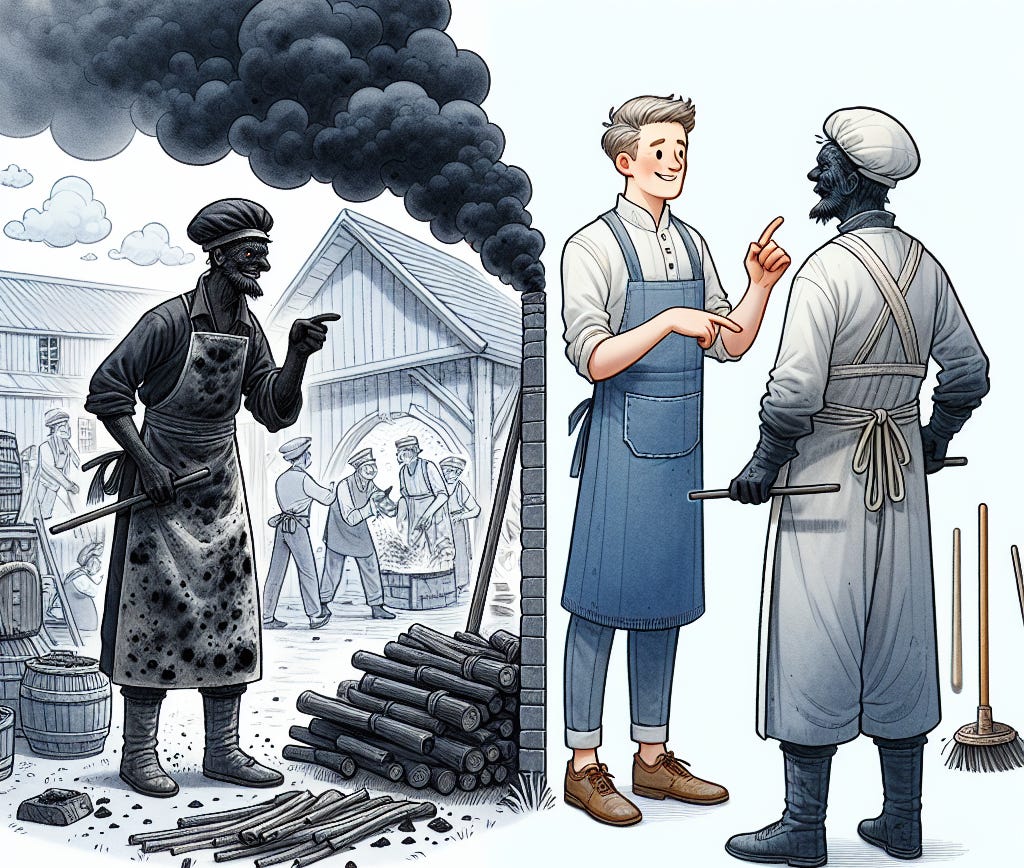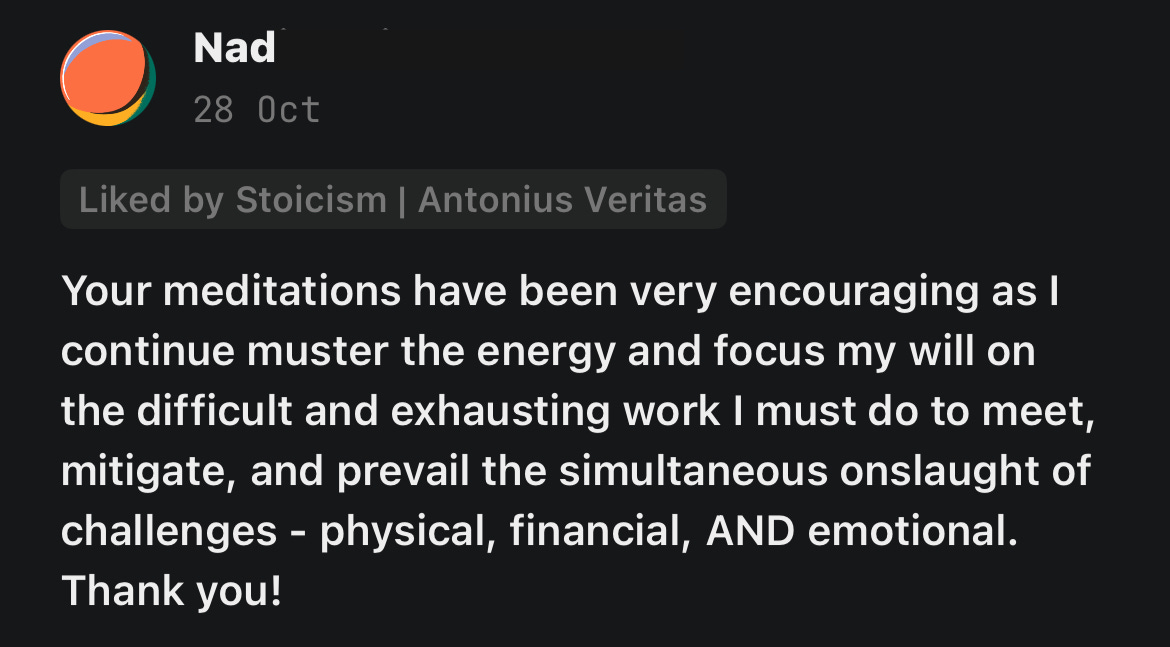XXXXII. Beware Bad Company
Everything I take such pains to whiten would be blackened in no time by your charcoal.

“You should be especially careful when associating with one of your former friends or acquaintances not to sink to their level; otherwise you will lose yourself.” — Epictetus
The following story is about The Charcoal-burner and the Fuller as told in Aesop’s Fables,
There was once a Charcoal-burner who lived and worked by himself.
A Fuller, however, happened to come and settle in the same neighbourhood; and the Charcoal-burner, having made his acquaintance and finding he was an agreeable sort of fellow, asked him if he would come and share his house.
“We shall get to know one another better that way,” he said,“ and, besides, our household expenses will be diminished.”
The Fuller thanked him, but replied,
“I couldn’t think of it, sir: why, everything I take such pains to whiten would be blackened in no time by your charcoal.”
We're the average of the five people we surround ourselves with.
Mirror neurons can help us learn skills fast or integrate the virtues of those we admire, but the dark side of this ability is absorbing the worst in people.
We don’t want to acquire bad habits or thoughts that stain our character through mimesis — it only ruins our lives.
It’s therefore wise to be careful about whose company we’re in, what we read, and what we see on social media.
That’s why Seneca wrote to his friend Lucillus,
“So long as you associate with a person who’s mean and grasping you will remain a money-minded individual yourself.
So long as you keep arrogant company, just so long will conceit stick to you.
Cruelty you’ll never say goodbye to while you share the same roof with a torturer.
Familiarity with adulterers will only inflame your desires.
If you wish to be stripped of your vices you must get right away from the examples others set of them.
The miser, the swindler, the bully, the cheat, who would do you a lot of harm by simply being near you, are actually inside you.”
It makes sense to keep away from corrupt people when one learns of this natural human tendency.
But can we really avoid people?
Seneca retorts,
“How is that possible?
And if we associate with them, can we change them? Who gives us that power?
What is the alternative — what means can be found for dealing with them?
One that ensures that we remain true to our nature, however other people see fit to behave.
…
When you are by yourself you should call it peace and liberty, and consider yourself the gods’ equal.
When you’re with a large group you shouldn’t say you’re in a mob or crowd, but a guest at a feast or festival — and in that spirit learn to enjoy it.”
We can live with people without name-calling or ostracizing them.
What a nuanced thought process concludes is that we have agency.
No one can force us to do anything.
We’re responsible for choosing to let people's ideas and actions influence us.
And as the captains of our lives, we’re then to blame if we turn out good or miserable.
We can have fun and converse with everyone without becoming like them.
You should neither become like the bad because they are many, nor be an enemy of the many because they are unlike you.” — Seneca
This requires high levels of self-awareness and a firm belief in what's good and beautiful so that we're not swayed into what's pleasurable but harms us over the long-term.
However, if we’re new to Stoicism — the secret sauce for a good and flourishing life, it’s prudent to practice solitude for a while until we crystallize our noble principles.
“When a mind is impressionable and has none too firm a hold on what is right, it must be rescued from the crowd: it is so easy for it to go over to the majority.” — Seneca
When we emerge back into the world, we can then maintain the mental distance to play with appearances, have fun, charm people, learn from them — all without losing sight of our North Star: acting with virtue.
“Inwardly everything should be different but our outward face should conform with the crowd.” — Seneca
You’ll gather a lot from everyone if you can lead the conversation, be polite, have fun, be curious, keep an open mind, and be non-judgmental.
You’ll learn much about empathy, love, and psychology if you train yourself to tolerate everyone and treat them fairly — as just another human being, like yourself.
Not as if they’re some criminals needing to be shunned and destroyed because they’re not as intelligent, wise, or share the same beliefs as we do.
A short conversation with the waitress might get you information that could help your business, a corner to avoid in the city, or an idea for your next essay.
Fools teach us lessons where experience would have cost us more than we can afford.
Analyzing our enemies instructs us on what works, what doesn’t, and it keeps us alert against our vices — what would make our foes happy if it destroyed us.
We also get a model for what we wouldn’t want to become.
Michel de Montaigne, a wealthy French Philospher and mayor, was genial, generous, and respectful to the less fortunate while his neighbors were tightwads who fenced their homes.
Guess who faced more theft and hostility?
Fence your kingdom with goodwill.
Plus you never know how minding your business and living virtuously might impact people.
“Happy the man who improves other people not merely when he is in their presence but even when he is in their thoughts!“ — Seneca
So how should we live with people who’ve lost their bearing on right and wrong?
Seneca solves this conundrum for us in this beautifully nuanced passage,
Do you like this meditation so far? ⭐️
Support the publication to read the rest and access 100+ premium essays & meditations.
Here’s what other readers are saying…






